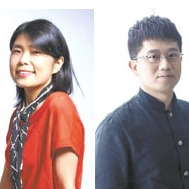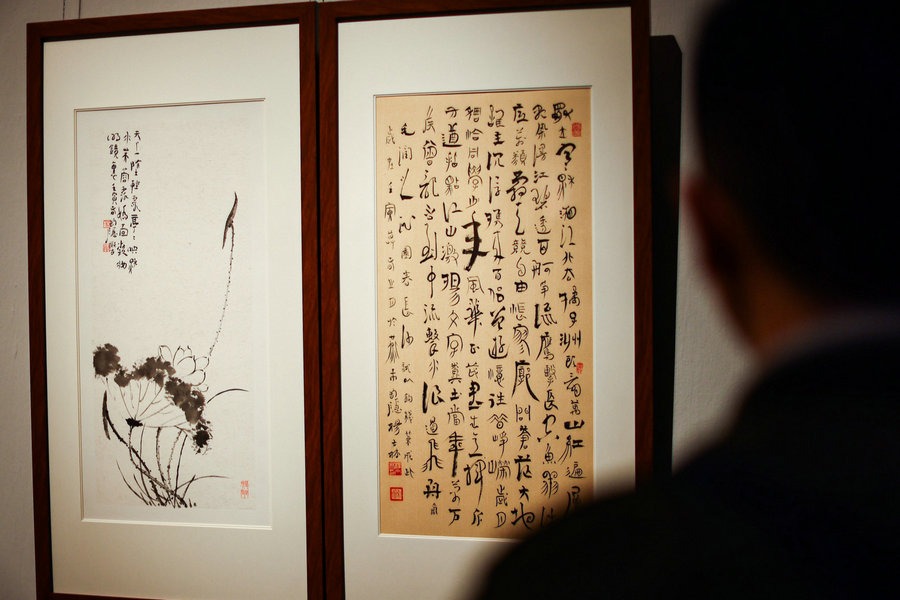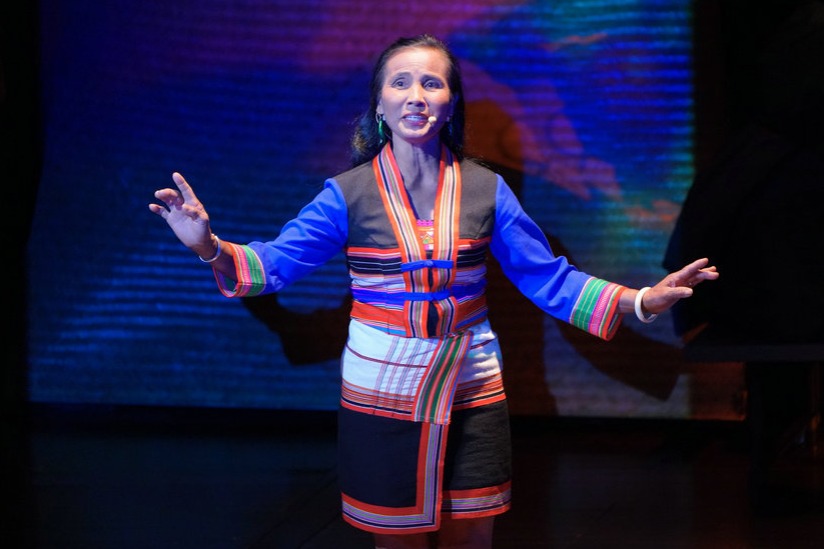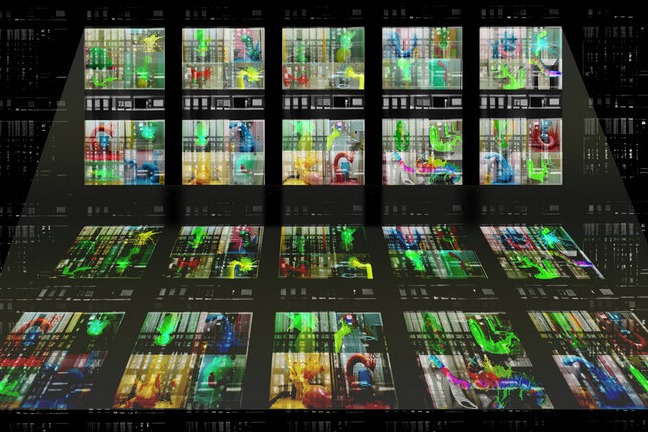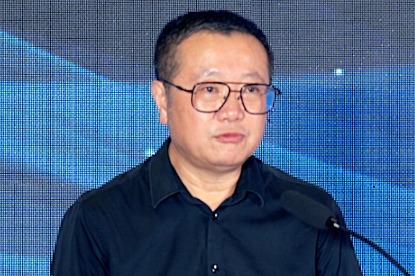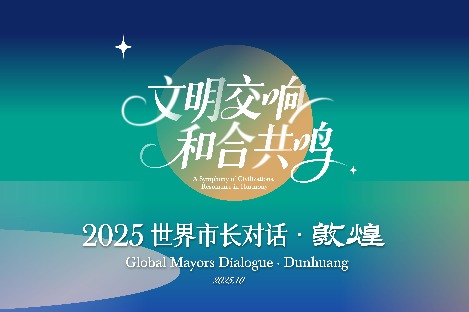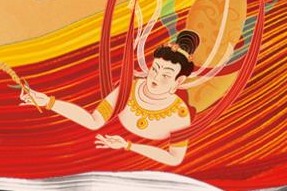Literary writers presenting society from multiple dimensions

Contemporary Chinese writers observe and interpret today's society from diverse perspectives. For example, Lu Min resists the debates on "the death of literature", remaining true to initial aspiration and approaching what she hopes to see in her work. Ma Boyong, Shuang Xuetao, and Shi Yifeng explore the details of their characters and the complexities of human nature from the perspectives of historical narrative, social transformation, and everyday life. And literary newcomer Liu Chuxin, after a decade of dedication, has produced works reflecting the struggles and downfalls of individuals amid the torrents of history. Together, they showcase the multifaceted value of contemporary literary creation.
Lu Min
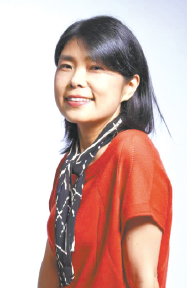
Born in 1973 in Dongtai, Jiangsu province, Lu Min worked as a post office clerk, secretary, planner, and civil servant from the age of eighteen before turning to fiction writing in 1998. Her representative works include the novels The Golden River, This Love Could Not be Delivered, and Dinner for Six, and short story collections such as The Viewfinder, Dream Harvester, Page-Drunk, The Song of Parting, Stirring up the Dust, and Accompany the Feast. She has received the Novelist of the Year Award, the China Writers Literary Award, the Lu Xun Literary Award, etc.
In June 2025, her new short story collection Those Who Do Not Perish was published by People's Literature Publishing House. Lu Min describes this book as part of her "early agedness" stage of writing, reflecting her understanding of life, living, and time.
In recent years, she has become increasingly renowned, particularly for her short stories and novellas. Amid debates about "literature is dead" or "living toward death," Lu Min has stayed steadfast, seeking to approach what she values most. Fellow writer Lu Nei remarked that the Chinese characters in Lu Min's novels may seem like ordinary people we encounter in our lives. When placed in a global context, however, they strike readers abroad as distinctive, embodying the unique value of literary writing.
Ma Boyong
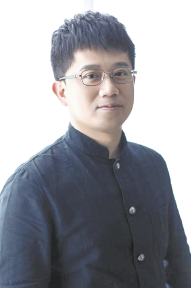
Born in 1980 in Chifeng, Inner Mongolia autonomous region, Ma Boyong graduated from the University of Waikato in New Zealand with a degree in business administration. Since 2015, he has worked full-time as a writer. He is acclaimed for his historical novels, noted for unearthing subtle details and hidden stories within grand historical narratives. His representative works include The Wind Rises in Longxi, Schemes in Antique, The Longest Day in Chang'an, and The Ming Dynasty Under the Microscope. He has also written science fiction works such as The City of Silence and Mark Twain Robots, with the former winning the Galaxy Award, China's top science fiction honor. His recent publications include Lychee of Chang'an and The Annoyance of the Gods. Many of his works have been adapted into popular films and television series.
Ma Boyong is among the most widely read and influential contemporary Chinese authors. His novels frequently feature historical figures and events, yet his narratives reveal fresh perspectives on history. Blending time travel, magic, and fantastical elements with a realist sensibility, his works explore pressing issues of modern society. His characteristic wit, optimism, and humor allow him to probe into the complexity and contradictions of human nature.
Looking forward, Ma Boyong hopes to express his current understanding of life literally, ensuring that each book breaks new ground and expands his creative boundaries to discover where his ultimate limits lie.
Shuang Xuetao
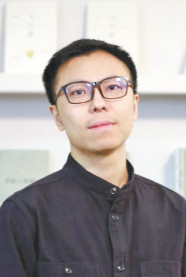
Born in 1983 in Shenyang, Liaoning province, Shuang Xuetao graduated from Jilin University. In 2011, after publishing his debut novella The Winged Devil, he resigned from his job as a bank clerk in Shenyang to pursue literature full-time. His major works include the novels Tianwu's Notes, The Winged Devil, and short story collections such as Moses on the Plain, The Aviator, Bright Hall, The Master, and Hunter. He has won the Global Chinese Film & Fiction Award, the Blancpain-Imaginist Literary Award, and Baihua Literature Award for Novella. Several works have been adapted into films.
Shuang Xuetao skillfully weaves elements of Northeast China and suspense into his stories, focusing on the fates of ordinary lives amid sweeping social transformations, which earned him growing recognition in the literary world. Reflecting on why many of his works are adapted for the screen, he explained that he emphasizes character-building in his writing, which is essential to crafting compelling films.
In his 2024 collection The Unceasing, his "Northeastern experience" retreated to a backdrop or a hometown setting, while science fiction and urban themes took the forefront. Boundaries of human nature, the duality of artificial intelligence, and the uncertainties of the online world are explored in this novella. Now in his forties, he is engaging with pressing social issues in his works, such as AI development, the proliferation of social media, the silencing of intellectual voices, and the future direction of humanity.
Shi Yifeng
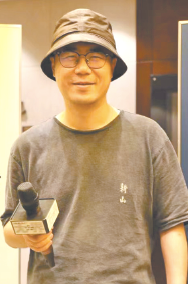
Born in 1979 in Beijing, Shi Yifeng graduated from Peking University with a degree in Chinese literature and now serves as a senior editor at the bimonthly magazine Dangdai. His representative works include the novels A Life for a Life, The Girl Under the Red Flag, and Love in Beijing, as well as story collections like The World Has No Chen Jinfang Left and The Ultra-Militant. He has received the Lu Xun Literary Award, the Feng Mu Literary Award, and the Baihua Literature Award.
Shi Yifeng believes that in today's era of instant information, we should place greater importance on the value of "deep reading." He insists that writers should create spiritual value, maintain composure, and remain closely connected to everyday life. Shi Yifeng is regarded as the "heir of rogue literature" due to the similarities between his works and those of Wang Shuo. His works, such as Love in Beijing and Parenting Journey of Three Families, brim with vivid details rooted in careful observation of life and society.
Regarding the issue of AI, he expressed concern that if AI were to occupy all aspects of human existence and the foundation of literature, life and lived experience would become AI-driven, leading to the extinction of the value of human literary creation. Though troubled by this prospect, he believes writers must actively engage with reality, clumsily yet deeply feeling, thinking, and expressing our present lives. Such genuine human experience, he argues, will become even more precious in a future dominated by AI.
Liu Chuxin
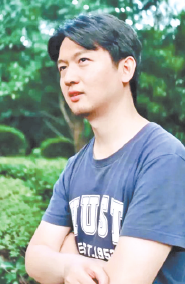
Born in 1991 in Jingzhou, Hubei province, Liu Chuxin received his bachelor's and master's degrees in philosophy from Huazhong University of Science and Technology, and a PhD from Wuhan University. His novel Quagmire, released in June 2025, won the 2nd Lijiang Literary Award for Fiction even before its official publication. It set a record with over 400,000 pre-sale copies in three weeks, making him one of the most celebrated debut authors of the year.
Liu Chuxin dreamed of becoming a writer at the early age of 13. He began conceiving Quagmire in 2013 and completed it in May 2025 after twelve years of drafting and revision. The title Quagmire carries three meanings: it pays homage to Li Jieren's 1935 classic Ripple across Stagnant Water, which depicted the conflicts among government officials, foreign missionaries, and the Boxer Rebellion between 1894 and 1901; it symbolizes the characters' struggles and downfalls in the tides of history; and it mirrors the author's own creative struggles, as he felt himself sinking into a metaphorical quagmire during the writing process.
Unlike writers focusing on regional themes, Liu Chuxin is more concerned with people stripped of regional identity amid modernization and industrialization, examining their shared traits or ailments. He has said that his future works will address contemporary themes, shaped by his own life experiences, such as his parents' layoffs during the period of reform and opening up, the country's rapid development, waves of urbanization, the rise of the internet, livestreaming, short videos, and consumerism. These experiences distinguish his work from that of older generations of writers. He states, "Our generation are the most suitable writers for describing the present and the decades ahead in China. And that is the mission of young writers."


